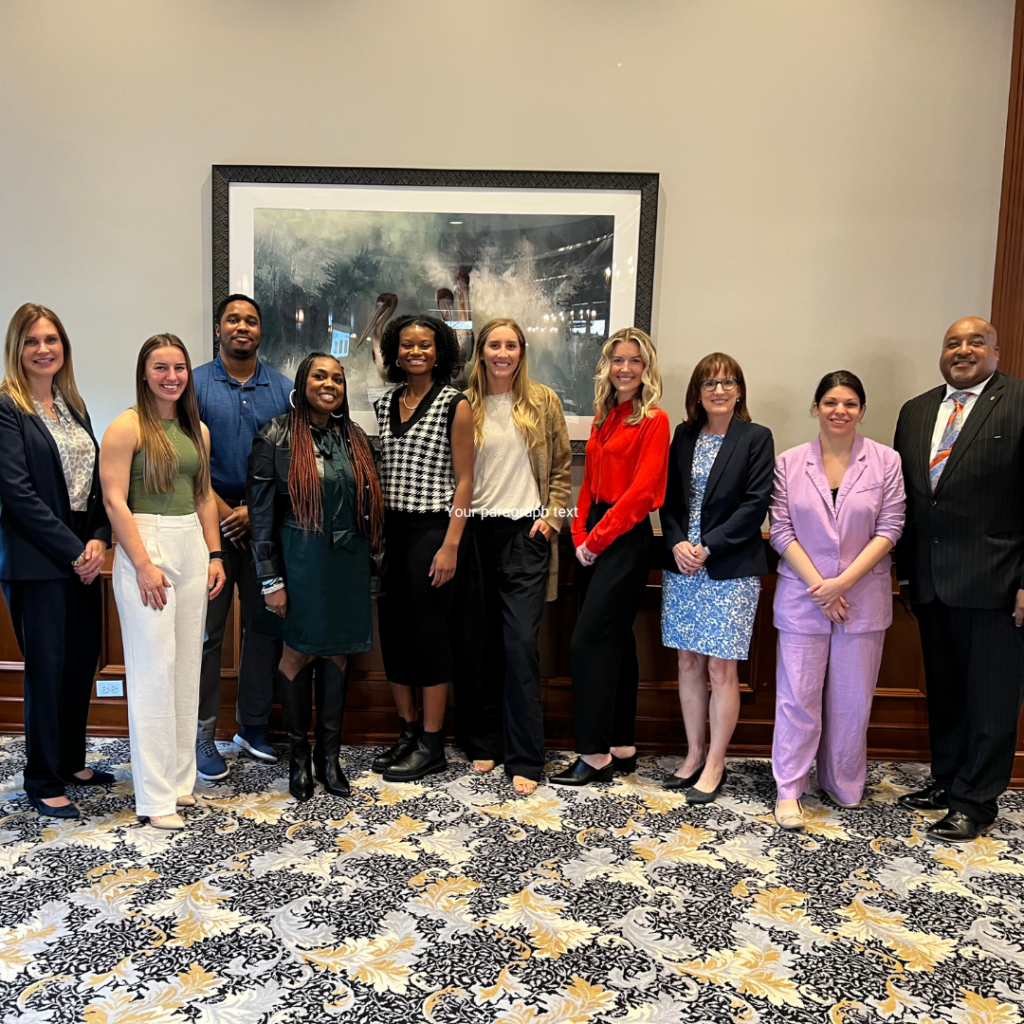On November 11, 2023, the American Psychiatric Association Foundation (APAF) brought its inaugural Mental Health: Where We Play event to Baton Rouge.
The APAF is the philanthropic and educational arm of the American Psychiatric Association. The Foundation promotes awareness of mental illnesses and the effectiveness of treatment, the importance of early intervention, access to care, and the need for high-quality services and treatment through a combination of public and professional education, research, research training, grants, and awards.
The event was an extension of their ongoing Mental Health Care Works campaign that raises awareness around the signs and symptoms of mental health disorders, showcases the efficacy of seeking help, and encourages individuals to start conversations and take action.

Athletes for Hope staff and AFH student-athletes attended the event held at The Country Club of Louisiana for a luncheon that brought together doctors, mental health professionals, coaches, and collegiate athletes to discuss and raise awareness of the unique mental health challenges experienced by athletes.
Participants spent time discussing athlete mental health topics including performance anxiety, coming back after an injury, the impact of social media, burnout, and more. The conversations were authentic and honest, showing the human side of mental health challenges that even the most accomplished athletes face.
AFH Athletes Deja Griffin of Southern soccer, Ali Newland of LSU softball, LSU beach volleyball coach Katie Dickens, and Janice Miller, mental health advocate and mother of Arlana Miller all took turns speaking on athlete-specific mental health experiences.
Deja Griffin gave details about her freshman year injury which caused her to sit out from two years of playing and how it impacted her mental health as well as her motivation to continue school. Ali Newland shared her insight on the state of youth sports and how the “pay to play” mantra has limited sport access for disadvantaged youth.

“There has always been conversations about mental health. The difference is people willing to listen.”
Dejas Griffin, Southern Soccer
The event concluded with Louisiana State Senator Cleo Fields stating that he felt motivated to do more in the mental health space, with a goal of adding additional mental health counselors in Louisiana colleges beyond LSU.
We are proud of our student-athletes who continue to engage in difficult conversations, knowing that their lived experiences as collegiate athletes can help to shape the next generations and we are thankful to our mental health partner, APAF, for giving them a space to share their stories.













